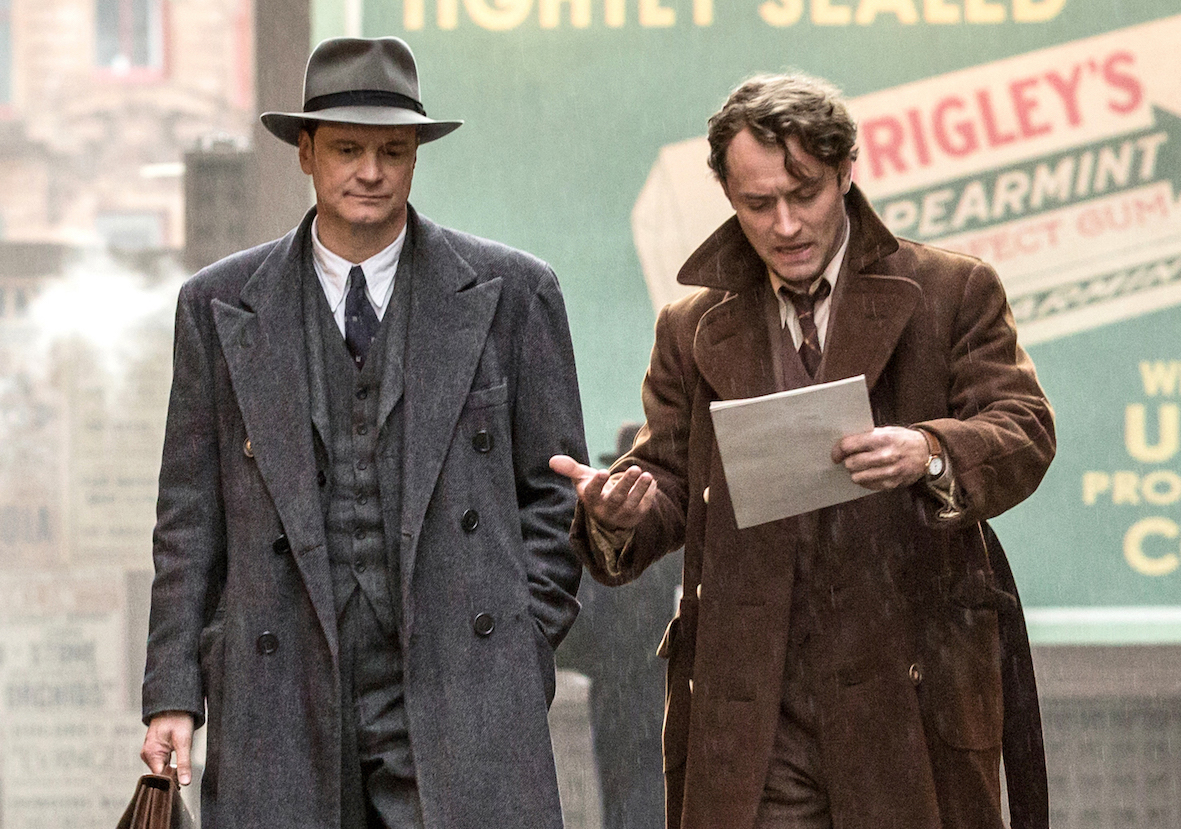Once upon a time, the word "genius" made us think not the help counter in an Apple Store but of people of incredible intellect who accomplished amazing things and relied on nothing more than their brains and bare hands. This "Genius" transports us back to such a time: 1929, when in New York City, the illustrious editor Maxwell Perkins at Charles Scribner's Sons is revered in the chronicles of American literature as the man who edited the works of Ernest Hemingway and F. Scott Fitzgerald.
By many accounts, Perkins had an infallible nose for marketable prose. He could edit his way out of a jail cell if he ever found himself in one. "Genius" zeroes in on Perkins' life from the moment when Thomas Wolfe, a young unknown novelist, walks through his door and a tumultuous literary friendship begins.
Based on the biography by A. Scott Berg ("Max Perkins: Editor of Genius") and directed by Michael Grandage, "Genius" is chock-full of period detail. It is rich with ink stains and pencil scribblings, while raucous in dialogue and the clacking of typewriter keys. Back then, books were weighty, valuable and involved a life of toil. To hold a volume in your hands was like handling a pound flesh of the writer and editor. The written word really meant something, and "Genius" shows Perkins (Colin Firth) grappling with words like a wrestler with an opponent, while Wolfe (Jude Law), dived into them like an athlete into a swimming pool.

















With your current subscription plan you can comment on stories. However, before writing your first comment, please create a display name in the Profile section of your subscriber account page.